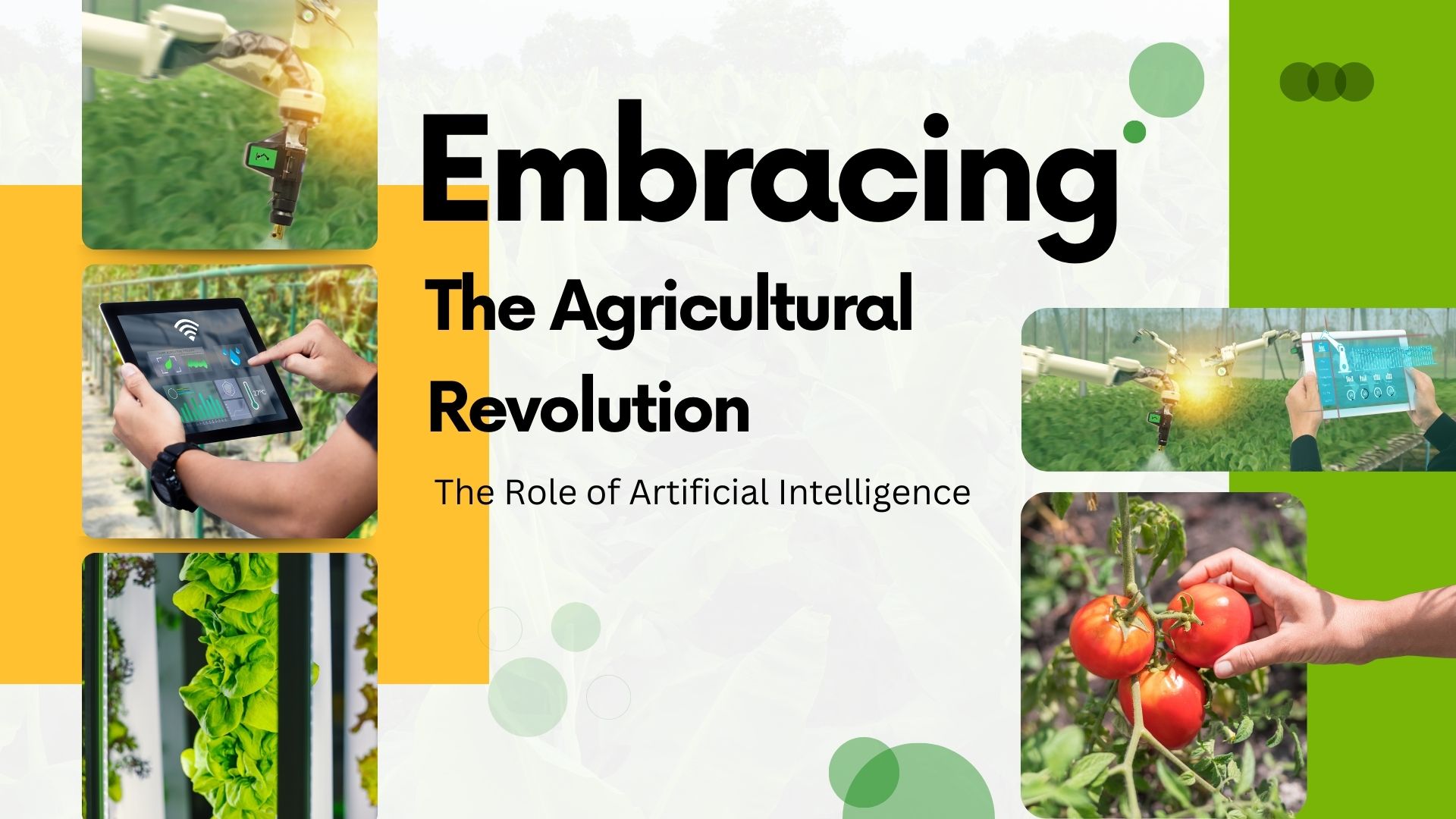
In the ever-evolving landscape of agriculture, digital technologies such as Artificial Intelligence (AI) and the Internet of Things (IoT) are promising to revolutionize traditional farming practices. As the industry embarks on a journey toward efficiency and productivity, the integration of AI is playing a pivotal role in reshaping the sector. This article explores the profound impact of AI on agriculture, from precision farming to smart crop monitoring, automated machinery, and beyond.
The Changing Face of Agriculture:
Digital transformation is sweeping through agriculture, ushering in an era of efficiency, precision, and sustainability. The quest for innovation is driving the deployment of solutions that could lead to fully autonomous farms, prompting a shift of labor from on-farm to off-farm professions. Small farms, in particular, face the imperative to “adapt or perish” in the face of highly digitized supply chains, making the role of governments, international organizations, and responsible private sector operations crucial in navigating the opportunities and risks presented by this digital revolution.
The Role of AI in Agriculture:
Over the years, the integration of AI in various industries has brought about significant changes, and agriculture is no exception. AI has emerged as a transformative force, revolutionizing the sector by introducing efficiency, precision, and sustainability.
Precision Farming with AI:
A game-changing transformation is underway through precision farming empowered by AI. This approach optimizes crop yields while minimizing waste by analyzing data from sources like weather patterns, soil conditions, and crop health. AI-driven algorithms enable farmers to make informed decisions, ensuring optimal resource utilization and reducing environmental impact.
Smart Crop Monitoring:
The introduction of AI-powered sensors and drones has ushered in an era of crop monitoring. Using imaging and data analysis, these technologies provide real-time insights into crop health, from disease detection to assessing levels. AI enables farmers to take proactive measures, enhancing overall crop quality and yield.
Automated Machinery and Robotics:
AI in agriculture extends beyond data analysis, with advanced machinery and robots powered by AI algorithms playing a crucial role on farms. Self-driving tractors optimize planting techniques, while robotic harvesters efficiently pick fruits, simplifying labor tasks, enhancing efficiency, and reducing labor expenses.
Predictive Analytics for Crop Management:
Predictive analysis, a component of AI, plays a vital role in crop management. By examining data, weather patterns, and market trends, AI can anticipate challenges and opportunities. This foresight empowers farmers to implement proactive strategies that minimize risks and maximize profits.
AI in Pest Management:
Effectively tackling pest control is a significant challenge in agriculture. AI solutions, including traps and predictive modeling, provide farmers with tools to monitor and manage pest infestations. By identifying patterns and potential breeding grounds, AI contributes to sustainable approaches to pest control.
Promoting Agriculture with AI:
In an era where sustainable practices are of utmost importance, AI has emerged as a driving force behind environmentally friendly agriculture. By optimizing resource utilization, minimizing waste generation, and reducing reliance on chemical inputs, AI plays a crucial role in establishing a sustainable and ecologically balanced agricultural ecosystem.
The Prospects for the Future:
As AI continues to evolve, its integration with emerging technologies such as IoT and blockchain holds promise for creating interconnected ecosystems that facilitate seamless communication and collaboration within the farming process. The future of agriculture lies in the collaboration between technology and farming methods, shaping a resilient and productive global food supply chain.
Conclusion:
The use of intelligence in the field of agriculture represents a paradigm shift for the industry, bringing about advancements in precision farming and sustainable techniques. As we move towards the future of agriculture, the collaboration between technology and farming methods will undoubtedly play a crucial role in shaping a resilient and productive global food supply chain. Embracing the agricultural revolution through AI promises not only efficiency and minimized harm but also higher crop yields, ensuring a sustainable and prosperous future for the industry.
